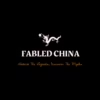Shaohao (少昊) had several sons, each of whom possessed distinct physical traits, personalities, virtues, and talents. Among them, one son named Chong (重) had the face of a human and the body of a bird. His face was square, and he often wore white clothing, traveling with two flying dragons. Chong was extraordinarily capable and highly favored by the Eastern Emperor Fuxi (伏羲). Together with Fuxi, he governed the East as the Wood God and was responsible for overseeing the spring season. He is commonly known as Juman (句芒).
Spring is the season of renewal, when all life awakens. As the Wood God, Juman held a compass-like instrument, symbolizing his control over the life force of all things on Earth during this time. The compass represented his authority, and the name Juman, which means “curved and winding,” reflected the shape of new plants growing in the spring, bending and soft. Juman also had the role of the God of Life. If someone performed good deeds or made significant contributions to the prosperity of the state, Juman would extend their life as a reward.
Another son of Shaohao was named Gai (该). Gai had the claws of a tiger, a human face, and his body was covered in white fur. He served as his father Shaohao’s subordinate and was known as Ruchou (蓐收), the legendary Golden God. Alongside his father, Ruchou governed the western territories, an area covering 12,000 miles. While Shaohao was tasked with observing the light from the setting sun reflected in the east, Ruchou’s duty was to monitor the sunset in the west, ensuring the glow of the twilight was as it should be. Additionally, Ruchou was responsible for administering divine punishment. If anyone committed harmful deeds that jeopardized the state, he would punish them—either by shortening their lifespan or, in the most severe cases, taking their life. His role was the opposite of that of his brother Juman.
Another son of Shaohao was Qiongqi (穷奇), who had a tiger-like appearance, with wings on his sides that allowed him to fly freely in the sky. He possessed a strange ability to understand the languages of people from all over the world. However, Qiongqi was known for his mischievous nature, often unable to distinguish right from wrong. For example, when he saw two people fighting, he would devour the righteous one while letting the wicked troublemaker go free. Nonetheless, there were times when he did good deeds. For instance, every year on the eighth day of the twelfth lunar month, Qiongqi and his companions would go around hunting down harmful, human-eating pests, driving them away or devouring them. This story will be elaborated later.
Shaohao’s son Ban (般) invented the bow and arrow, greatly enhancing humanity’s ability to hunt beasts. Another son of Shaohao, named Beifa (倍伐), was exiled to the south, where he became the god of the divine spring known as Mianyuan (缗渊).
One of Shaohao’s descendants, named Mei (昧), served as a water deity and was called Xuanming (玄冥师). Mei’s son, Tai Tai (台骀), was honored for his achievements in controlling floods and was appointed to govern the Fenchuan (汾川) region. During Emperor Yao’s reign, Shaohao’s descendants helped him govern the state. Gāo Yáo (皋陶), a descendant, assisted Emperor Yao in managing the state, and Bo Yi (伯益), another descendant, helped Emperor Yu (大禹) control the Great Flood.
Moreover, one of Shaohao’s descendants lived in a distant northern land known as the “One-Eyed Kingdom,” where the people possessed a single eye located in the center of their faces. This kingdom was considered miraculous due to its unusual inhabitants.
In summary, the descendants of Shaohao were numerous and capable, serving in various divine roles to assist the Heavenly Emperor in governing both the heavens and the earth. They worked tirelessly to maintain order and prosperity in the realms of both gods and mortals.
